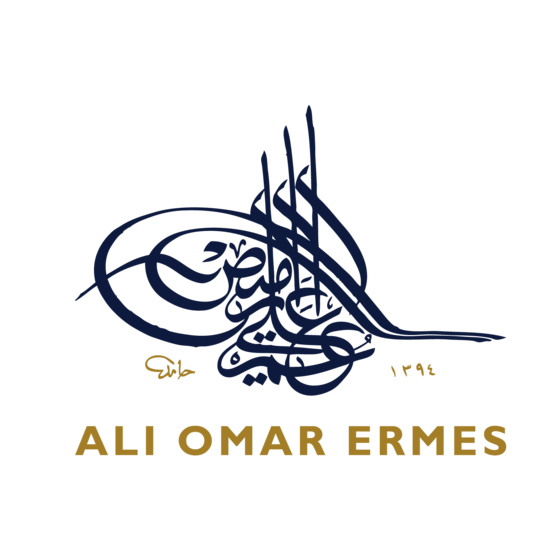Al-Khaa Al-Ashhab: An Ode to Resilience
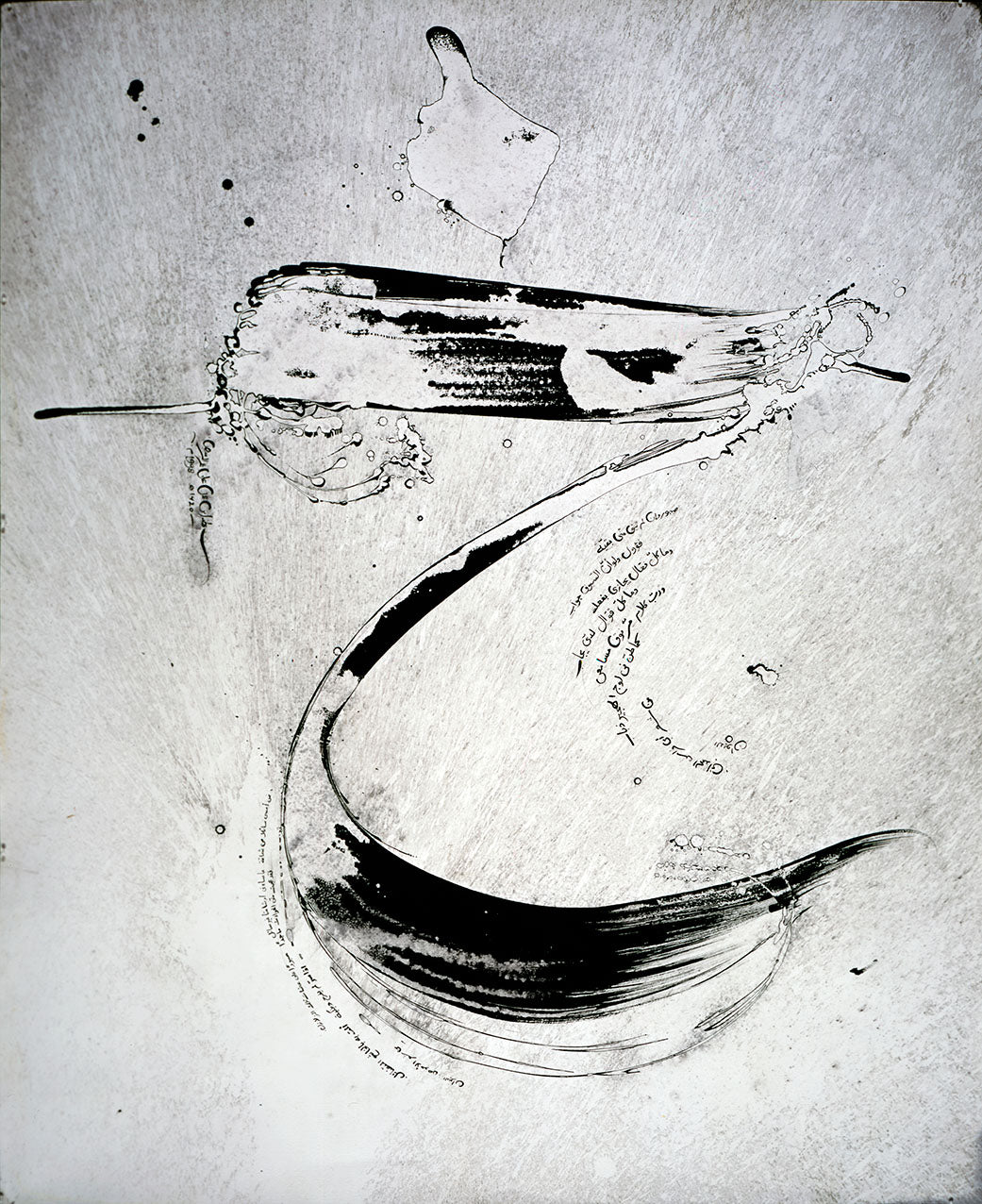
Ali Omar Ermes' painting "Al-Khaa Al-Ashhab" is a powerful and striking interpretation of the Arabic letter khaa, evoking a sense of swiftness and speed through its elegant brushstrokes. The monochrome palette, a play on the name Ash-hab, meaning greyness, adds depth and complexity to the work.
Incorporated into the painting are lines from a poem by the tenth-century prince and warrior Abi Faris Al-Hamadani. This poem adds another layer of meaning to the artwork, describing Al-Hamadani's willingness to overcome pain and disappointment, and his commitment to remaining positive during hardship. It also touches on the importance of treating others with nobility and respect.
This 152cm x 122cm masterpiece, painted with acrylic on paper and mounted on canvas in 1998, is now in the collection of a private collector. It serves as a reminder of the resilience and strength that can be found within us, and the importance of treating others with kindness and compassion. Some of Al-Hamadani's other poems also explore similar themes, such as "The Knight in the Panther's Skin," in which he writes, "I will not be saddened by the world's woes, / I will not be grieved by the world's misfortunes, / I will not be terrified by the world's horrors." These words speak to Al-Hamadani's unwavering resolve and positive attitude in the face of hardship.
Leave a comment
Also in ARTWORKS IN PRIVATE COLLECTIONS
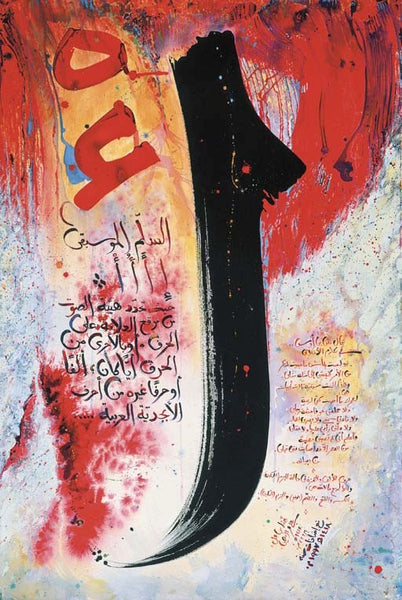
Alif Sucoon
The poem written by Muaan Ibn Aws, one of the most influential poets in Arabic literature, speaks out against corruption and social decay, declaring the poet's stance on honor. The artwork captures the emotion and urgency of the poem, inviting the viewer to consider their own values and beliefs."
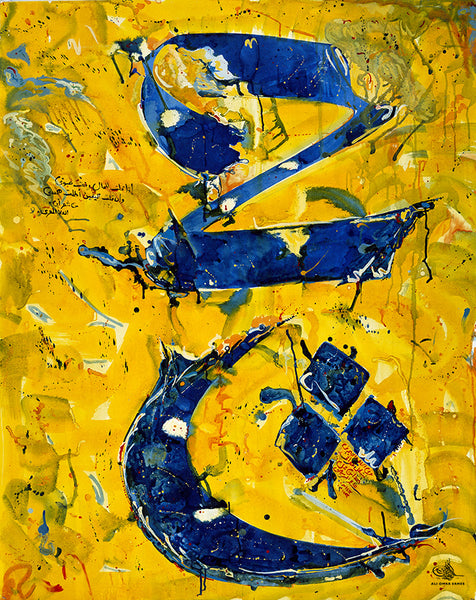
Tughra: Whispers of Wisdom: An Artistic Tribute to Abul Ala Al Ma’arri
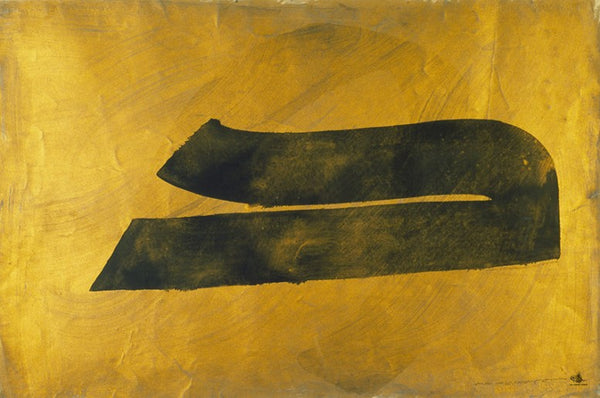
Harf Ul Dal
This breathtaking piece by Ali Omar Ermes showcases the versatility and depth of the Arabic language through the use of a single stroke technique. Through this technique, Ermes is able to convey a range of emotions and expressions that range from the simplest and most direct to the most complex and nuanced.
